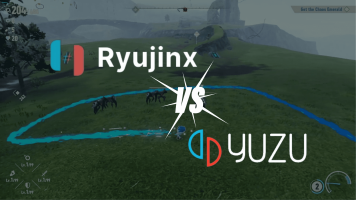The first of which was regarding the use of AI in video game development. Hartmann says that currently, the 5-year average development time for video games is "way too long", and that it makes it difficult for publishers to know what games will be worth publishing when greenlighting projects, and that a lot of it comes down to luck. AI, he claims, will help developers create new ideas.
So, my hope is that AI will help. It's not going to solve it all, but will be one thing where we, for example, can shorten the life cycle. I think games development takes way too long, like five years per game. It's us predicting — especially in a fast-moving world — what the zeitgeist is going to be in five years. It just means basically, everything will be lucky shots and hopefully AI will help us to streamline processes so hand-done work will go fast. Ideally we can get it down to three years so we can iterate more, which then will bring the budgets down a little bit. I don't think they're really going to get cheaper, but at least you fail faster and then you can go on and go on until you find the right thing.
And I think we as a games industry need it, and AI is hopefully going to also help us to come up. I mean, we didn't really have that many new games and genres. On the other hand, we'd also be coming and doing this since 1996, we are an established industry. In 1996, you looked out of the window and said, "Let's do a skateboarding game." It was that simple... Movies or music who have been through it much, much longer than us, they have a hard time coming up with something new...But I think eventually, we as an industry definitely have to innovate on many levels to develop faster and also be willing to take more risks.
Following that, Hartmann makes a comment on the SAG-AFTRA strike, in regards to voice actors in the video game industry seeking protections against AI for their performances. He says that AI will primarily help with creating ideas and streamlining work, so it won't take away jobs from anyone. He then continues by saying "especially for games, we don't really have acting", a statement that has generated lots of controversy online for its lack of clarity. Whether Hartmann meant that acting isn't an in-house part of video game development, or that AI isn't at that point where it can replace performances, or if he was disregarding motion capture and voice acting in the video game industry is up for debate.
Yeah, we have. I mean, I got to be careful what is here because we are a big company and have to deal with all those organizations, so I don't really want to get in the middle of it. But when we talk about AI, first of all, hopefully it will help us to have new gameplay ideas, which has nothing to do with taking work away from anyone. And especially for games, we don't really have acting... The majority of the team sits in programming and that's not going to go away because that's all about innovation. If it takes something, it will be really the boring parts. I think what could be super helpful is localization. Right now, we're localizing our game into a certain set of languages. Basically, does it commercially make sense to have it in a language, yes or no? Having AI actually will help us.
Finally, Hartmann ends off the interview by saying AI will be helpful with "boring" aspects of video game creation. As it costs money to localize a game, AI could theoretically help get games into as many languages as possible, for as cheap as possible. But in terms of creativity, AI will not be able to create unique and fresh video game concepts, as humans will always be the best at that.
And by the way, I don't believe any technology can replace human creativity and the uniqueness... There's always something special. Humans will be always, when it comes to that, they will be always one step ahead. The machine might get very close. I don't know what you think, but I don't think it will be able to translate those unique things into fresh ideas. If you find AI designing games, the game's going to be all the same.
 Source
Source




